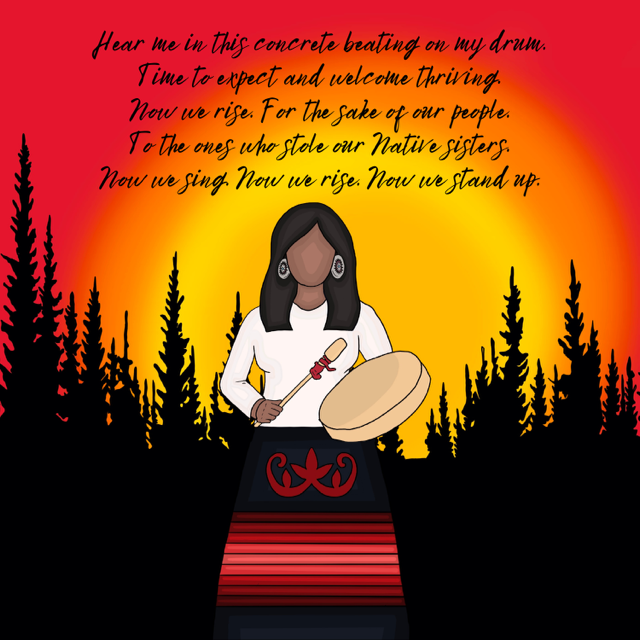
Engagement with the epistemologies that are ancestral to us
is a fundamental human right.
Red Hope is a call for the practice of this right
Where Gluskabe thrives …
- Sockbeson (2017)
Rebecca Sockbeson, PhD
Dr. Rebecca Sockbeson (she/her) is a Professor with the Department of Educational Policy Studies in the Faculty of Education at the University of Alberta.
Dr. Sockbeson is of the Penobscot Indian Nation, the Waponahki Confederacy of tribes located in Indian Island, Maine, United States and the Maritime provinces of Canada. She is the 8th child of the Elizabeth Sockbeson clan, the auntie of over 100 Waponahki & Stoney Sioux youth, and the mother of three children who are also of the Alexis Nakota Sioux Nation of Alberta. She earned a Masters Degree in Education from Harvard University and a PhD in Educational Policy Studies at the University of Alberta.
Rebecca is an activist and scholar, specializing in Indigenous Peoples Education. Her research focuses on Indigenous knowledge and knowledge mobilization (also the topic of her current SSHRC Insight grant), Aboriginal healing through language and culture, anti-racism and decolonization. In 2013, she received, together with her Indigenous colleagues, the University of Alberta Human Rights Teaching Award for her role in coordinating and teaching Alberta’s first compulsory course in Aboriginal Education.
Rebecca’s poem honouring Murdered and Missing Indigenous Women, “Hear Me in this Concrete Beating on my Drum,” was a winning entry in the Word on the Street Poetry Project in 2018.
It is sandblasted on the sidewalk in front of the Canada Post Downtown Depot at 10535 - 96 Street in Edmonton, AB as part of a permanent public art installation.
Photo Credit - Brad Crowfoot
IPE (Indigenous Peoples Education) Graduate program students marching for justice for Colton Bushie
Artist - Megan Tipler (Instagram @tiplerteaches)
Indigenous graduate student & instructor for Aboriginal Teacher Education Program (ATEP) in the Faculty of Education at the University of Alberta.
We are the data we collect and analyze
The intellectual contributions of Indigenous scholars must transcend the valuing ascribed by the academic mainstream as individual perspectives. As Indigenous scholars, we are often asked to share our “perspectives” on a particular issue; in fact, we have rightfully earned our expertise on such topics or issues through lengthy, rigorous and disciplined intellectual study. As Indigenous scholars, we have a distinct responsibility to share and mobilize such truths also identified as our findings. In other words, we are often the very data we collect and analyze. In many ways, we are all living out the painful legacy of colonialism, and often we are intergenerational survivors of residential schools. As a consequence of colonial dispossession and its immense unresolved historical trauma, our hearts are heavy with the violent deaths of our families and loved ones. Our scholarship is carried out under the shadow of tragedies associated with the disproportionately high levels of our own constant socioeconomic distresses.
(Excerpt from Sockbeson 2017, Indigenous Research Methodology: Gluskabe’s Encounters with Epistemicide, p 6)
